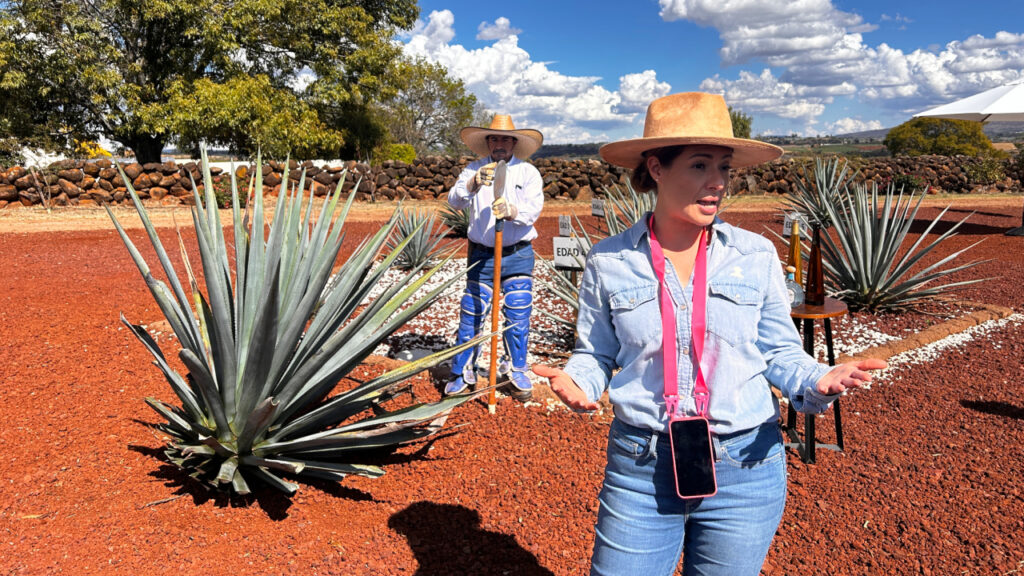
How Two Latinas Are Tackling the Fentanyl Crisis Head-On—And Saving Lives
Fentanyl has become the leading drug involved in overdose deaths in the Latino community, and the numbers are staggering.
Between 2018 and 2022, fentanyl-involved deaths among U.S. Latinx youth skyrocketed by 517%. But two courageous women—Gina Malagold and Renee Cuevas—are tackling this crisis head-on through La Nueva Drug Talk (LNDT).
Their initiative is part of Song for Charlie, a national family-run nonprofit charity dedicated to raising awareness about ‘fentapills’ — fake pills made of fentanyl.
A Personal Mission: Gina Malagold’s Journey After Tragedy
For Gina Malagold, the fight against fentanyl is deeply personal. After losing her younger brother Dylan to a fentanyl-laced pill in 2020, she was compelled to take action.
“If I had access to the knowledge and resources to keep my brother safe…he may still be alive,” she told FIERCE. Dylan’s loss became the catalyst for her advocacy, transitioning her career from academia to drug policy reform.
As Director of Multicultural Affairs for Song for Charlie, Gina now leads LNDT. The bilingual platform offers culturally relevant resources designed to help Latino families confront the fentanyl epidemic.
Gina knew that Latino communities were facing unique challenges when it came to drug education. “There is a reluctance to talk about fentanyl within the community,” Gina explained, highlighting the stigma and cultural barriers that often prevent open discussions.
This cultural gap inspired her to create LNDT, which tailors drug education to meet the specific needs of Latino families. “We address the stigma faced within the community. We address linguistic and cultural gaps and develop creative tools. These include our learning-based scenario modules and community listening sessions to reach our communities through our content suite and community events and activations,” she added.
Bridging Generational Gaps: Renee Cuevas’ Role in Gen Z Outreach
Renee Cuevas, a first-generation Latina and pre-med student, joined LNDT after being inspired by Gina’s determination.
Having faced her own struggles navigating misinformation about substance use, Renee recognized the urgent need for awareness among her peers. “There is an urgent need for awareness,” Renee emphasized, noting that Gen Z has been particularly vulnerable to fentanyl-related overdoses. “Young people today are bombarded with alarming and confusing messages about drugs,” she said. Renee points to the confusion many feel about the risks of casual drug use in the era of fentanyl.
She now plays a vital role in LNDT’s outreach. The goal is to help and create bilingual resources that resonate with Latino youth and their parents.
One of the key components of the initiative is its focus on fostering open, informed conversations between generations—something often missing in traditional drug prevention efforts. “La Nueva Drug Talk enabled both parent and child to feel more prepared and empowered to have the talk and stay safe,” Renee said, reflecting on the success of a recent LNDT event in Virginia.
Understanding the Crisis: The Reality of Fentanyl in the Latino Community
The Latino community has been disproportionately affected by the opioid epidemic. Studies show that while the opioid crisis initially seemed to target white, rural populations, opioid use, and overdose deaths among Hispanics have steadily increased.
From 1999 to 2017, overdose mortality rates in Hispanic populations increased by 3.3% each year. However, by 2022, fentanyl was found in 70% of drug overdose deaths in the Latino community.
The data highlights the urgent need for culturally sensitive education and prevention. Research from the University of Southern California revealed that while many Latino families are aware of the dangers of opioids, knowledge gaps persist. Particularly around resources like naloxone, the life-saving drug that can reverse an overdose.
Participants in the study also reported that financial barriers often led them to share or borrow prescription drugs. This behavior can increase the risk of exposure to fentanyl-laced pills.
“Song for Charlie works to have an empowering and action-oriented message to help show young people how they can protect themselves and their friends from fentanyl,” Gina said. “We want everyone to know that the drug landscape has changed from even just a few years ago. Now, because of fentanyl, even experimentation can result in poisoning and death.”
A Culturally Tailored Approach: How LNDT Breaks Barriers
One of the unique aspects of LNDT is its focus on cultural relevance. Research has shown that Hispanic communities often face barriers to accessing drug education and treatment. These include language obstacles and fear of deportation. The stigma surrounding drug use in the Latino community also plays a role. Many families are often hesitant to seek help or talk openly about the issue.
Renee explained how LNDT is breaking down these barriers: “We address the stigma faced within the community, address linguistic and cultural gaps, and develop creative tools…to reach our communities.” These tools include scenario-based learning modules, bilingual resources, and community listening sessions that allow families to engage with the material in ways that resonate with them.
Gina emphasized the importance of this tailored approach: “As part of the Latinx Advisory Team, we worked to craft the foundation of content that will speak to Latino communities, families, parents, caregivers, and teens with culturally nuanced, evidence-based drug education and prevention strategies.” Through LNDT, parents and caregivers are provided with practical strategies to protect their loved ones. Meanwhile, teens and young adults learn how to recognize the signs of fentanyl-laced pills and avoid dangerous situations.
Changing the Conversation Around Fentanyl Can Save Lives
The impact of La Nueva Drug Talk is already being felt in communities across the country. “Students left empowered to initiate conversations in their homes about the contaminated drug supply,” Gina said, referencing a recent event in Virginia that targeted Spanish-speaking families. The success of these events underscores the importance of culturally resonant messaging in tackling the fentanyl crisis.
For Gina and Renee, the mission is clear: save lives. By equipping Latino families with the knowledge and resources they need, LNDT is working to reduce fentanyl-related deaths and promote healthier coping strategies. “We want young people to know they can protect themselves and their friends,” Renee said.




